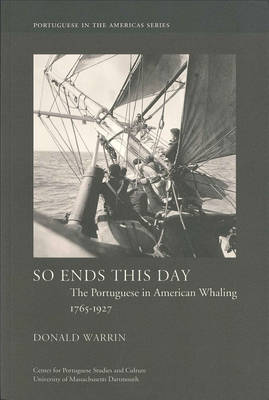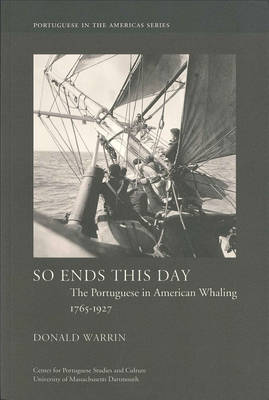
- Afhalen na 1 uur in een winkel met voorraad
- Gratis thuislevering in België vanaf € 30
- Ruim aanbod met 7 miljoen producten
- Afhalen na 1 uur in een winkel met voorraad
- Gratis thuislevering in België vanaf € 30
- Ruim aanbod met 7 miljoen producten
Zoeken
Omschrijving
In the first half of the nineteenth century whaling was one of the young American nation's most important industries, providing lubricants and illumination as well as baleen, the plastic of its day. So Ends This Day: The Portuguese in American Whaling, 1765-1927 traces the history of the American whaling industry from its seventeenth century beginnings in Massachusetts and Long Island to its demise in the third decade of the twentieth century, while highlighting the role of its Portuguese participants. Their story begins with Joseph Swazey who, in 1765, returned to Martha's Vineyard from an Atlantic whaling voyage; and it terminates with the aborted voyage of Capt. Joseph F. Edwards aboard the John R. Manta in 1927. From a few random crew members in the latter half of the 18th century, these men from the Portuguese Atlantic islands of the Azores and Cape Verde came to dominate the industry in its final decades. Their participation would ultimately determine the principal settlement patterns of the Portuguese in the U.S.: New England, California, and Hawaii. But it led as well to distant communities in such diverse places as Alaska, New Zealand, and the Pacific atolls. It is a story of courage and determination in a far-reaching industry in which many of these individuals advanced to positions of responsibility unparalleled among non-English-speaking immigrants to the United States.
Specificaties
Betrokkenen
- Auteur(s):
- Uitgeverij:
Inhoud
- Aantal bladzijden:
- 416
- Taal:
- Engels
- Reeks:
- Reeksnummer:
- nr. 13
Eigenschappen
- Productcode (EAN):
- 9781933227283
- Verschijningsdatum:
- 1/06/2010
- Uitvoering:
- Paperback
- Formaat:
- Trade paperback (VS)
- Afmetingen:
- 152 mm x 224 mm
- Gewicht:
- 680 g

Alleen bij Standaard Boekhandel
+ 92 punten op je klantenkaart van Standaard Boekhandel
Beoordelingen
We publiceren alleen reviews die voldoen aan de voorwaarden voor reviews. Bekijk onze voorwaarden voor reviews.











